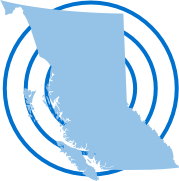
United Way Grants
United Way British Columbia provides funding to non-profit organizations in the following areas: children and youth, food security, healthy aging, urgent response and more.


At United Way British Columbia, we strengthen vital connections that support people in need in local communities across our province. One way we do this is through our various grant streams. These United Way grants help build a strong social support network by providing programs and services for communities in need. Our intention is to be responsive during challenging and urgent times to ensure our friends and neighbours are cared for and connected. Our grant streams are available throughout the year. Updated information can be found on this page.
Working together, we can build inclusive, resilient communities.
Province Wide
Work Experience Opportunity Grant 26/27
Many British Columbians continue to face challenges in economic recovery and securing stable employment. United Way BC’s Work Experience Opportunities Grant supports BC non-profit organizations to provide paid work experience placements to individuals on income or disability assistance. Participants will gain essential work-related skills and hands-on experience to improve their employability and prepare them for in-demand jobs across BC.
For more information about this grant, please refer to the application guide. To help you apply, an application template can be found here. Please note you must apply online.
Applications close February 24, noon.
Want to learn more?
Watch our grant information session here or view the PowerPoint.
Watch our grant writing information here.
Questions?
For enquiries, please contact Stacey Swarchuk, Project Coordinator at staceys@uwbc.ca.
United Way BC Work Experience Opportunities Grant is funded by the Government of Canada and the Province of British Columbia.

Lower Mainland
No grants currently available.
Southern Interior
No grants currently available.
Thompson Nicola Cariboo
No grants currently available.
Central & Northern Vancouver Island
No grants currently available.
Powell River & qathet Region
No grants currently available.
Southern Vancouver Island
School’s Out 2026-2027
What is United Way BC’s School’s Out initiative:
United Way BC School’s Out initiative supports the development of healthy, happy, and resilient children between the ages of 6 and 12. The focus with this initiative is to ensure children are safe, protected, and enjoy healthy and culturally nutrition snacks in the critical hours of 3pm-6pm afterschool, while participating in activities that support them to reach their full potential.
This School’s Out open-call is focused on inviting proposals to be implementing partners for the program in the Southern Vancouver Island region. School’s Out will be accepting applications for 2 streams
- Stream One: Non-Indigenous-led organizations (this can include charitable registered agencies, nonprofits, school districts, BC societies, or grassroots groups);
- Stream Two: Indigenous-led organizations, governing bodies, or communities. This can include Land-based Nations, a band or tribal council, government of a self-governing First Nation or Métis Nation Chartered Community, Society or Association, or not-for-profit, society, or grassroots group.
To help you apply, an application template can be found here. Please note you must apply online. Need more information on the grant? Watch our grant information session.
Applications close Tuesday, March 3, 12PM.
Each School’s Out program site must meet the following key requirements:
- Children aged 6-12 from priority populations (this includes Indigenous, newcomers and refugees, racialized, low-income, or neuro-diverse populations);
- Free or offered at a highly subsidized rate for children;
- Is operated as a registered program, not a drop-in;
- The program site runs at least twice a week per site to ensure regular connection and engagement for the cohort of children, and include a healthy snack;
- Must take place in an accessible location or have transportation arranged;
- Community collaboration is encouraged – for stream one, preference will be shown for applications that demonstrate clear partnership between the non-profit/agency/society that is implementing the School’s Out program with their local school district;
- Program activities and experiences for the kids must focus on 5 core domains: 1) Identity Development, 2) Social & Relational Well-being, 3) Community & Land Stewardship, 4) Health & Wellness, and 5) Skills & Competencies. School’s Out programs must include activities and opportunities relating to these outcome domains to ensure children are developing in all 5 areas;
- The program is called and branded “School’s Out” on all soft and hard media generated by the implementing partner and promoted publicly as such.
Funding commitments
If successful, partners are required to meet the following requirements:
- Reporting: Quarterly and final reports;
- Implementation and submission of participant surveys to UWBC;
- Attendance of at least one staff member at the School’s Out Community of Practice (takes place via Zoom quarterly – in November, February, and April).
Ineligible
School’s Out budgets must be used solely for the purposes of implementing the afterschool program (including staffing costs, program supplies, food costs) outlined in the project proposal and approved budget. The funds cannot be used for unrelated projects or the following:
- Admin costs above the 10% threshold;
- Capital costs;
- After-school programs outside of BC, daycare (licensed or unlicensed), virtual/online-only programs, or one-on-one tutoring;
- Apparel and swag costs (ie: t-shirts, waterbottles, and items that require custom logo printing);
Questions?
Reach out to Kevin Yang, Engagement Coordinator at keviny@uwbc.ca.
Timeline
- Info session: January 12th 2026
- Applications live on portal: January 19th 2026
- Deadline to submit: Tuesday, March 3rd at 12PM noon (lunch time)
- Decisions announced late April 2026
Northern BC
No grants currently available.